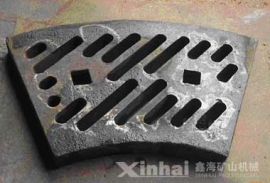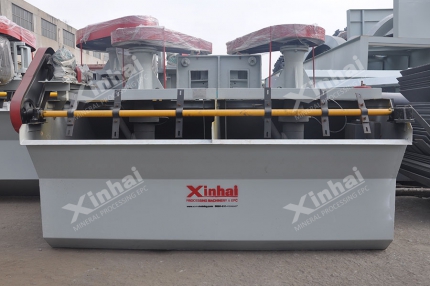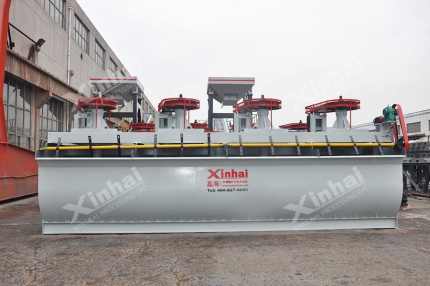Although gold exists in the form of simple substance in natural world, gold is usually associated with other mineral ores in a complex relationship, Sometimes the conventional physical separation method has been incapable of classifying gold mine, so the separation process that uses different surface hydrophobicity of mineral becomes the common beneficiation processes in gold beneficiation plant. There are many that affect the gold flotation process, such as particle size, flotation reagent system, pulp density, flotation time, agitation intensity, inflatable volume, pulp temperature, etc., In order to achieve better flotation effect, all parameters must remain optimal value for the flotation process.
1. Particle Size
In gold flotation process, the grinding fineness depends on the of gold Khenpo size, too large or too small will affect the final flotation effect. Too big particle size, on the one hand, the gold might not reach monomer separation, so the grade of god is low. On the other hand, due to the limitation of foams carried, bad adsorption function of coarse grain, small contact probability between coarse grains and foams, etc., too big particle size is not convenient for the foams float, which leads to the loss of this part of the gold mine with the bottom flow. While too small mineral particles are not conducive to flotation, too big grinding fineness increases inevitably ion in slurry, the inevitably ion and purpose mineral forms the competitive adsorption in the bubble surface, reducing the flotation cell efficiency. The fine-grained minerals have large specific surface area and surface energy, strong adsorption capacity for pharmaceutical, therefore, too small particle size can increase the reagent consumption during the gold flotation process.
2. Reagent System
The reagent system of gold flotation process refers to the kind of reagent, reagent dosage, adding methods, adding order, etc. Flotation is through the selectively absorption of the reagent and purpose minerals to increase differences of surface hydrophobicity between the purpose minerals and gangue minerals, the minerals with large hydrophobicity will adsorb on the surface of foams and rise with foams, then complete the separation of minerals. The reagent is the key to change hydrophobic lines, therefore, the reagent system is particularly important for flotation.
3 Pulp Density
Pulp density refers to the solid contents in pulp, usually refers to the quality(or volume) ratio of slurry solids (minerals) to liquid (water), expressed by liquid-solid or solid quality fraction .The gold pulp density affects the gold recovery rate, concentrate quality and reagent dosage.
4 Flotation Time, Agitation Intensity, Inflatable Volume, Pulp Temperature
In the flotation process, these factors also affects the quality of the final concentrate, as for different gold ores, these parameters generally are different; it must be determined by beneficiation experiments.
There are also many other factors that affect the gold flotation process, such as the water PH, hardness, oxygen content in factory ,etc. The mineral processing experiments must be carried out on the basis of accurate information before designing the processes.


 marketing@ytxinhai.com
marketing@ytxinhai.com  0086 13810327080
0086 13810327080 






































































































 CHAT
CHAT MESSAGE
MESSAGE


